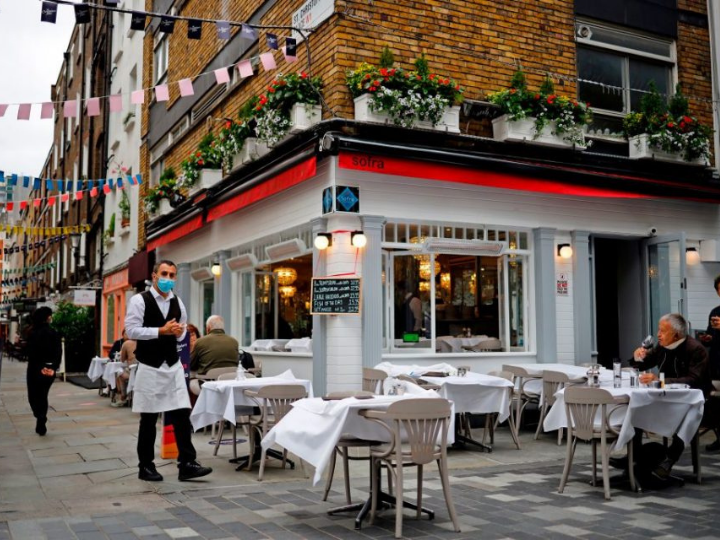by Julia Watson*
Even before the tentacles of COVID 19 strangled the UK hospitality industry, observers of London’s ever-expanding restaurant scene had a suspicion that somewhere in the shadows of an alleyway between all those East London kitchens lurked Emperor Nero with his fiddle at the ready.
Surely there were only so many handmade pasta counters that the capital’s restaurant scene could support.
The London restaurant scene
Until the turn of the century, eating out in London was a predominantly expense account business. High end restaurant tables occupied by denizens of the media, advertising and finance were beyond the budgets of a younger generation.
But over the past two decades, affordable restaurants and chains have blossomed in every British city center. The young, who have discovered that getting their feet on the property ladder is beyond their grasp, instead spend their wages on eating out.
They may not be able to post photos of their designer nests on social media. But pictures of every fashionable dish they eat go immediately online.
It is these restaurants that COVID 19 is shutting down by the score. And with the shrinking of the food business goes the vision of a whole generation for their future, till now held out as a beacon of stability.
Can the government help?
When the first COVID 19 outbreak in the UK shuttered restaurants, the hospitality industry was supported by government schemes that kept workers in certain industries semi-afloat.
As time went on, restaurants that had the capacity and the finances to transform themselves became ready-meal delivery outlets, mailing finish-them-off-at-home feasts all-round the country.
But not every operation was equipped to do that. By last July, the hospitality industry was warning that half of UK firms would not survive without government backing.
And by the time of the most recent shutdown, many worthy but one-horse operations had gone under. The government is weighing its continued support of the hospitality industry. According to the opposition Labour Party, 650,000 hospitality jobs are currently at risk.
So many places need support
Every sector of society is struggling. Don’t the National Health Service, education, the police, the fire brigade and other public services deserve financial support more than the hospitality business, the argument goes?
And it goes on to say it isn’t vital to our wellbeing to eat out with the regularity we enjoyed pre-COVID 19. Surely society can manage without restaurants in the manner of the art galleries, museums and theaters, which — it seems — come low on the list of priorities of Boris Johnson’s government?
Economists predict international visitor spending in 2021 will plunge by 78%, equating to a loss to the UK economy of £420 million a week, with the hospitality sector hardest hit.
The restaurant job ladder
What is not raised when the impact of COVID 19 on restaurants is discussed, is its effect on the future of post-Millennials. The hospitality business is prime in offering accessible job opportunities for young people.
The media talk of a lost generation of schoolchildren who are missing out on teaching. There’s another generation, the next one up, which is currently in limbo at some stage of their higher or university education.
It’s about job creation, stupid!
Before COVID 19, the hospitality industry would have offered many of them their first jobs.
Post COVID 19, when these people graduate, unless they emerge with a degree in a desirable specialty, it’s doubtful they will find employment until the economy recovers, and then not immediately — or possibly at all.
That will put this generation, as well as the younger one, in a stasis of unknown length, added in number to those who were once employed in hospitality who have lost their jobs.
If they don’t find work, not only will they never be able to buy their living quarters, but they may not be able to afford to rent them.
At least if we do something to support restaurants, this age group will be able to sustain some hope that they are not destined to become a burden on society.
Open restaurants will lift the spirits of society as a whole. They will also offer those who can afford to eat in them again — those people who were able to support the hospitality industry through their regular ordering-in of restaurant meals — an opportunity to shore up that section of the community.
And, to do so in a manner that benefits the buyer, at the same time as securing a future for the young without whose capacity to earn, there is no future.
*award-winning cookbook writer and blogger of "Tabled," a blog with recipes and curious facts about big food business
**first published in: www.theglobalist.com




 By: N. Peter Kramer
By: N. Peter Kramer
